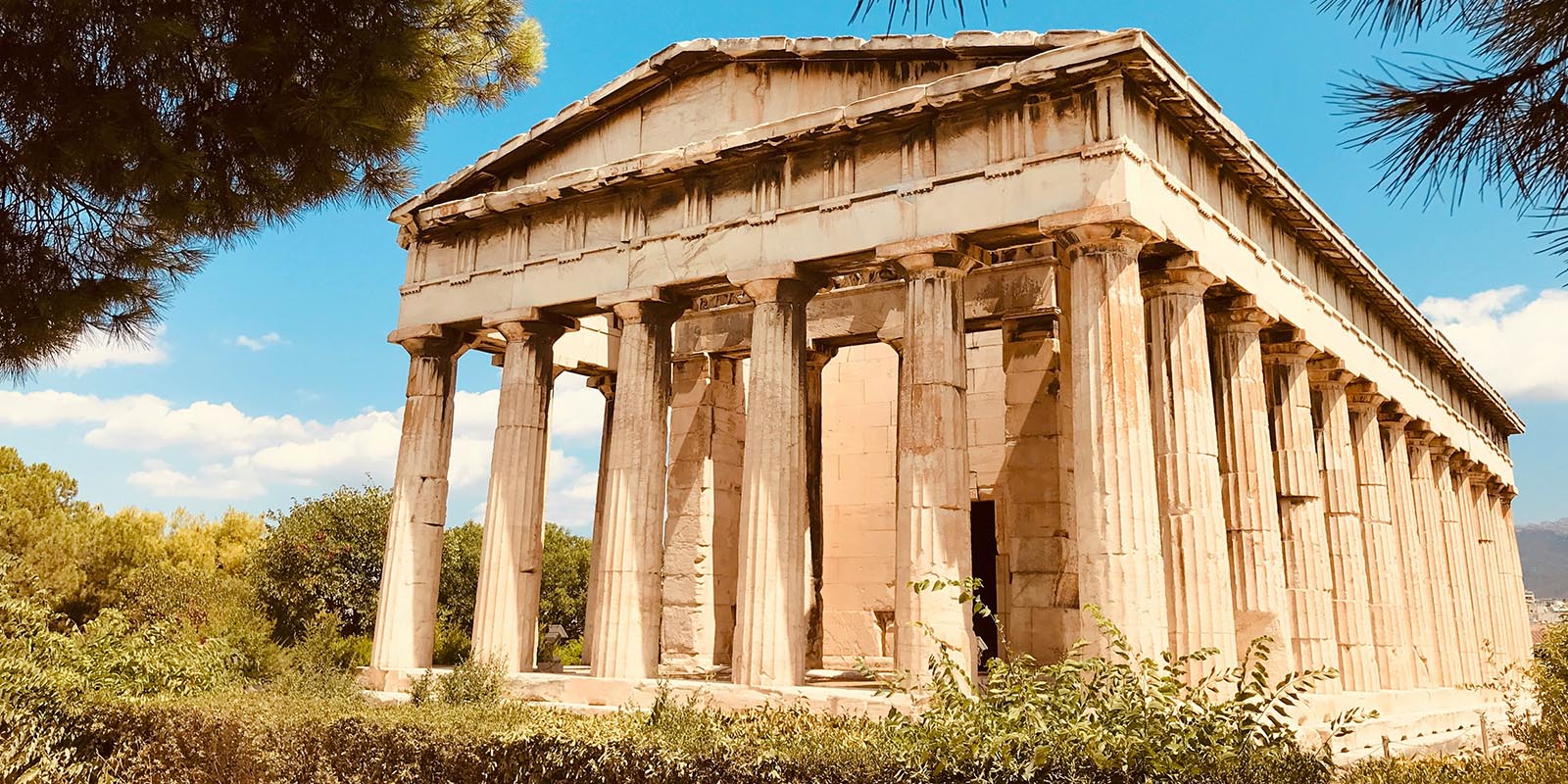

Ancient Greek religion was deeply intertwined with daily life, influencing personal, familial, and civic activities. The Greeks believed in a pantheon of gods and goddesses who controlled various aspects of the natural world and human experience. Household worship often included offerings to Hestia, the goddess of the hearth, and family rituals were conducted to honor ancestors and household deities.
Major Deities: The Olympian gods, led by Zeus, were the central figures in Greek religion. Each god had distinct attributes and domains: Athena was the goddess of wisdom and warfare, Apollo governed music and prophecy, and Poseidon ruled the sea. Temples dedicated to these deities were prominent in city-states, and festivals celebrating their myths and powers were integral to Greek society.
Rituals and Sacrifices: Religious rituals were a key part of Greek worship. Sacrifices, both animal and, occasionally, human, were performed to gain the favor of the gods. Public ceremonies, such as the Olympic Games, were held in honor of Zeus, blending religious observance with social and political significance. Festivals like the Panathenaia celebrated Athena's birthday and included processions, feasts, and competitions.
Oracles and Divination: Oracles played a crucial role in Greek religion, providing divine guidance on personal and state matters. The Oracle of Delphi, where the priestess Pythia communicated Apollo's prophecies, was one of the most revered. Greeks sought omens through various means, such as interpreting the flight of birds or the entrails of sacrificial animals, to make decisions and understand the will of the gods.
Mythology and Literature: Greek mythology, a rich tapestry of stories about gods, heroes, and mythical creatures, was a cornerstone of Greek culture. These myths explained natural phenomena, human behavior, and historical events. Poets like Homer and Hesiod immortalized these tales in epic works such as the "Iliad," "Odyssey," and "Theogony," which were central to Greek education and identity.
Societal Structure: Ancient Greek society was hierarchical and patriarchal, with a strong emphasis on citizenship and civic duty. Citizens, who were free adult males, participated in political life and military service. Women, slaves, and metics (foreign residents) had limited rights and were excluded from political participation. However, women's roles varied, with some, like Spartan women, enjoying greater freedoms compared to their counterparts in other city-states.
Philosophy and Ethics: Greek philosophers like Socrates, Plato, and Aristotle profoundly influenced Western thought, exploring questions of ethics, politics, and the nature of existence. Their works examined the role of the gods, the nature of virtue, and the ideal society. Philosophical schools such as Stoicism and Epicureanism offered different perspectives on achieving a fulfilling life, often focusing on reason, self-control, and the pursuit of happiness.
Legacy: The religious beliefs and societal structures of ancient Greece left a lasting legacy on Western civilization. The Greeks' emphasis on humanism, democracy, and inquiry shaped the development of European culture, philosophy, and government. Their myths, literature, and philosophical ideas continue to influence modern thought, reflecting the enduring impact of ancient Greek religion and society.

In Ancient Greece, the Oracle of Delphi was one of the most important religious sites. People from all over the Greek world would travel to Delphi to seek guidance from the priestess, known as the Pythia, who was believed to deliver prophecies directly from the god Apollo.
Ancient Greek art and architecture, with its harmonious proportions and timeless elegance, continue to inspire awe and admiration millennia later.
Discover
Greek mythology, a rich tapestry of gods, heroes, and mythical creatures, captivates the imagination with its tales of love, betrayal, and epic adventures that delve into the depths of the human psyche.
Discover
Ancient Greek history, marked by remarkable achievements in democracy, philosophy, and warfare, shaped the foundation of Western civilization, leaving an indelible legacy of innovation and cultural influence that continues to resonate to this day.
Discover
The ancient Greek Olympics, held in Olympia every four years, celebrated athleticism, unity, and cultural pride, serving as a testament to the enduring spirit of competition and excellence that transcends time and borders.
Discover
Ancient Greek wars, such as the Persian Wars and the Peloponnesian War, were pivotal conflicts that shaped the course of history, highlighting the struggle for power, independence, and the clash of civilizations in the ancient Mediterranean world.
Discover
Ancient Greek culture and society, characterized by its emphasis on art, philosophy, and civic engagement, fostered a vibrant intellectual and social landscape where innovation flourished, democracy thrived, and the pursuit of knowledge and excellence was celebrated as fundamental values of civilized life.
Discover
Find out more about ancientgreece.com